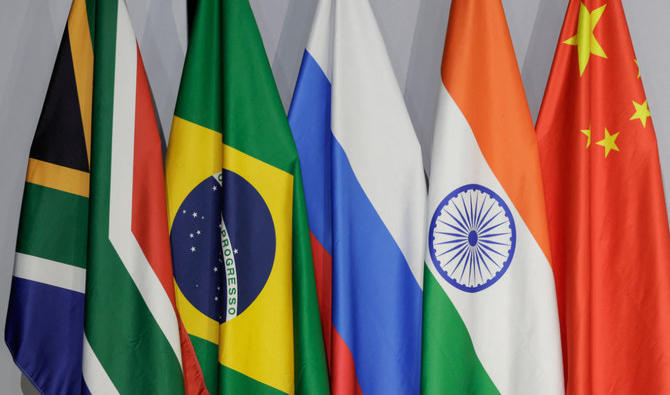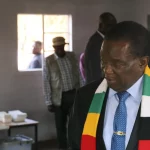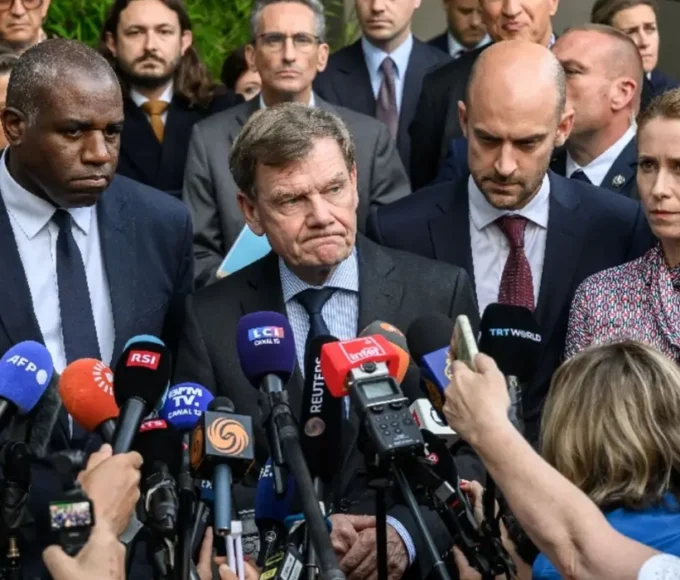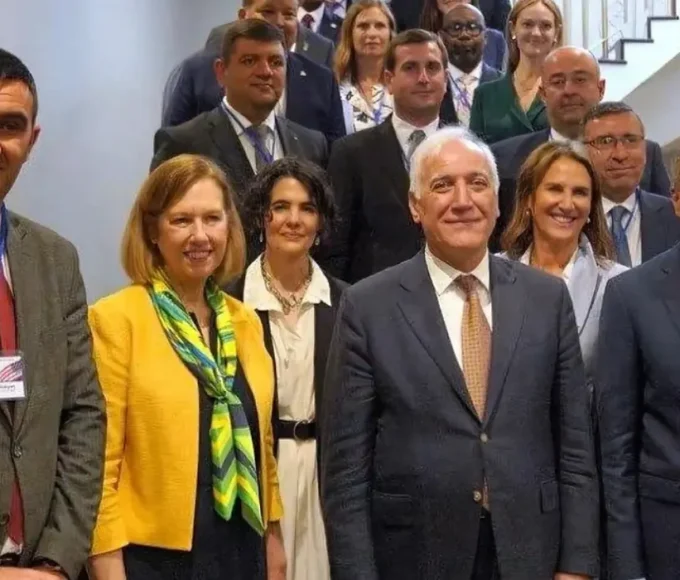As Algeria aspires to join the BRICS – which group together the main emerging economies of Brazil, Russia, India, China and South Africa – questions arise about the preparation of this North African countries to such an undertaking. His exclusion from the list of countries invited to join the bloc next January suggests that it may be too early for Algiers. However, such a move raises the question of whether joining the BRICS would actually bring strategic advantages to Algeria, or whether it would simply lead to a series of complications.
After all, becoming a member of the BRICS is a major foreign policy shift that would influence Algeria’s national trajectory. This membership also puts a fascinating spin on the emerging world order, with profound implications for the Maghreb region. For Algiers, signaling its intention to join a program to build capacity in emerging and developing countries – as shown by its willingness to invest up to $1.5 billion in the New Development Bank – marks the beginning of a new international engagement strategy. In a way, this candidacy comes at a strategic time when Algeria is reassessing its economic model, moving from an energy-based economy to promoting diversification and modernizing its industries.
Furthermore, Algeria has yet to take full advantage of its high status in relation to European energy security, which makes it attractive to an emerging bloc whose grand ambitions are to compete with the G7 and improve the South-South cooperation. However, a continued reliance on fossil fuel revenues and a lingering stance on certain geopolitical rivalries will limit, if not hinder, Algeria’s dream of joining the BRICS.
The horizons of this ambition must be confronted with the immediacy of the challenges facing the Algerian economy, including high unemployment rates, fluctuating oil prices and prolonged budget deficits. Before plunging headlong into the BRICS, Algeria could perhaps seize the opportunity presented by evolving macroeconomic dynamics to modernize industries, amplify exports, create jobs and engage in digital transformation.
While Algeria currently enjoys stable economic prospects in the short and medium term, uncertainty hangs over the long term, which leads the country to actively seek foreign investment to stimulate its diversification and modernization efforts. The dramatic increase in pensions, public wages and retirement benefits in Algeria’s 2023 budget speaks to the country’s worrying dependence on hydrocarbon revenue. This dependence makes the country vulnerable to price fluctuations, which are often the cause of budgetary difficulties and social unrest.
It goes without saying that a solid economic base is essential to allow Algeria to orient its foreign policy, raise its regional profile, protect its national security and extend its influence around it and on the African continent. Since President Abdelmajid Tebboune took office in December 2019 following the ousting of Abdel Aziz Bouteflika, he has worked to decouple Algeria’s foreign policy from the isolationism that characterized its diplomacy in the 1990s. and 2000. In just three years, Algeria’s foreign ministry has made several startling changes and shown an unusual spirit of initiative, underscoring the North African country’s efforts to participate more actively in global and regional affairs.
Thus, Algeria’s desire to join the BRICS transcends mere economic prospects and reflects its intention to shed a legacy of careful diplomacy to reappear on the world stage, in pursuit of its geopolitical aspirations. Currently, the country enjoys relative domestic political stability and short-term economic strength, mainly due to increased energy revenues and increased demand for Algerian gas following the war in Ukraine. . As the government can focus on foreign policy and has leeway until the presidential elections in 2024, it is well placed to address internal socio-political challenges and appease the population through expanded benefits and subsidies. , thereby reducing the risk of economic unrest.
However, to make the most of a potential rise, Algeria needs to show greater flexibility in its foreign policy and skilfully navigate the complex relations within the BRICS. The country’s improving economic performance, its record budget for 2023 and the stability of its political landscape provide an opportune moment for the adoption of an active foreign policy and for Algeria to progress towards the influence it wishes to practice on the international scene. In the context of its geopolitical strategy, Algeria’s potential membership of the BRICS could give new impetus to its role in Africa. With Africa gradually becoming indispensable to global geopolitics, Algeria could leverage collaboration with the BRICS to promote South-South partnership, foster African regional integration, and increase its influence on the continent.
However, adopting a Brics-centric foreign policy may require drastic policy shifts. The BRICS, a coalition rooted in shared economic interests and mutual ambitions of multipolarity, will demand that Algerian diplomacy be agile, and that its political frameworks be inclusive and flexible, capable of negotiating multifaceted interests. For example, Algeria’s longstanding affiliation with Europe could become complicated, especially if Algiers ventures beyond energy cooperation into new areas. Algeria will therefore have to find a delicate balance between its growing relations with the BRICS and its existing ties with Europe, which will allow it to navigate a dynamic, but uncertain terrain of diverse strategic interests.
Algeria’s potential integration into the BRICS could fundamentally rebalance power dynamics in the Maghreb region, amplifying its influence and challenging its neighbors, particularly Morocco, given their tumultuous history and contentious issues between them. . This repositioning could intersect with Algeria’s existing geopolitical strategies aimed at stabilizing its turbulent neighbors Tunisia and Libya through discounted gas and electricity exports. Such moves are part of Algiers’ calculated efforts to contain regional instability that extends to its own borders.
Furthermore, Algeria has played a rather proactive and assertive role in brokering an agreement between rival Palestinian factions, strengthening its commitment to the non-aligned movement and presenting itself as a regional power alongside Mediterranean interlocutors such than Egypt and Turkey. This projection of diplomatic influence, coupled with potential economic aid, was intended to encourage undecided Arab countries to forgo normalization. It is not yet known if Algiers succeeded in achieving its goals or if it simply delayed the inevitable.
Nevertheless, any foreign policy deviation, however small, exposes Algeria to increased security risks, in particular the possibility of renewed tensions with Morocco over mutual relations with Sahelian, sub-Saharan and African countries. other North African countries. Algeria’s support for the pro-autonomy Polisario Front, which could potentially exacerbate geopolitical tensions beyond the Maghreb, is a major flashpoint.
At the same time, any decision to deploy military forces abroad could attract the attention of terrorist groups linked to these conflict zones, thus creating a potential threat to Algeria. Therefore, while Algeria’s BRICS bid could provide a platform for expanding regional influence and strategic partnerships, it also comes with a complex web of potential risks and challenges. The real diplomatic finesse would be to balance these opposing forces while navigating towards a position of regional importance.
Ultimately, the Algerian dream of joining the Brics faces a host of opportunities and challenges that could precipitate a significant reshaping of its national and international narratives. On the one hand, such a move could accelerate the nation’s economic diversification, support its geopolitical ambitions and position it as a key player in the complex dynamics of the Maghreb, thus elevating its status on the world stage. On the other hand, Algeria could find itself grappling with the delicate task of balancing its strategic alliances and adapting to the new regional and international contexts arising from membership in the BRICS.
Therefore, while strategically defensible, Algeria’s membership of the BRICS depends primarily on how the country addresses its internal challenges, reconciling the ambitions of its policymakers with a changing world order. This potential leap could redefine not only Algeria’s status quo, but also its footprint on the African continent and beyond.
Hafed al-Ghwell is Senior Fellow and Executive Director of the Ibn Khaldun Strategic Initiative at the Foreign Policy Institute at the Johns Hopkins University School of Advanced International Studies in Washington. He previously served as Chairman of the Board of the World Bank Group.
This article is originally published on arabnews.fr









